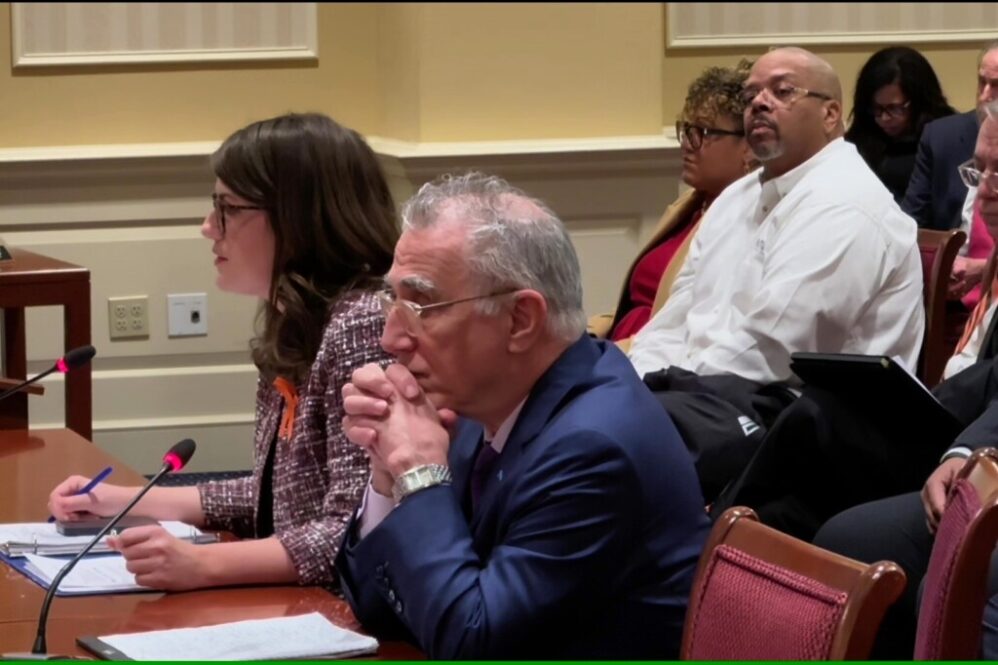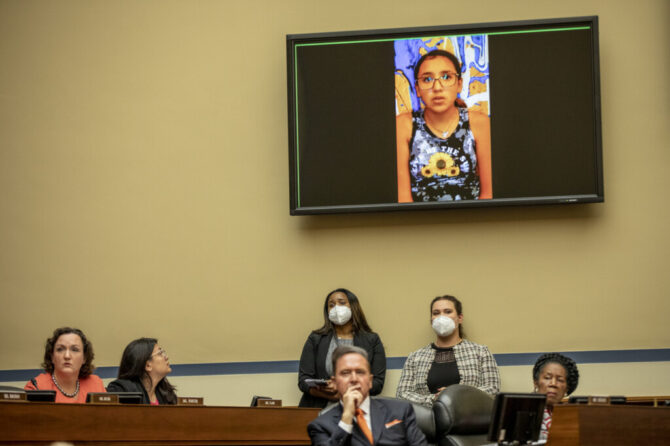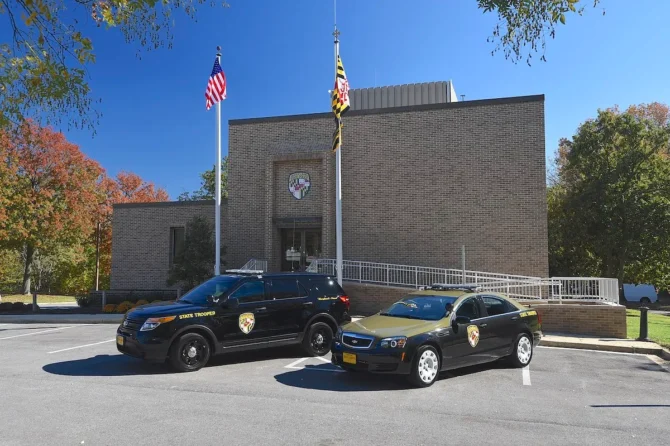MARYLAND MATTERS: Before Karla Mooney began her testimony Wednesday opposing legislation to put an 11% excise tax on guns and ammunition, she spread some love to the Senate Budget and Taxation Committee.
“Happy Valentine’s Day,” said Mooney, a firearms instructor in Southern Maryland.
But then she immediately criticized Senate Bill 784 — the Comprehensive Community Safety Funding Act.
“I can tell you that this is a tax against people’s rights to defend themselves,” Mooney said. “You cannot throw money at things and expect it to change. It has to come from the heart.”
Jaka McKnight of Prince George’s County said her heart still aches from the death of her 13-year-old son, who was shot and killed on April 17, 2021.
“I’ve been propelled into a realm of unimaginable pain and loss. But despite this darkness, I refuse to stay silent,” she said. “I stand in support of the Comprehensive Community Safety Funding Act. This bill is not just a piece of legislation, but a beacon of hope for communities ravaged by gun violence.”
The legislation, sponsored by Sen. Sarah K. Elfreth (D-Anne Arundel), would impose a tax on firearms, firearms accessories and ammunition to fund the state’s Trauma Physicians Services Fund, which helps cover costs for medical care by trauma physicians, for Medicaid-enrolled patients and other trauma related on-call and standby expenses.
The fund currently gets about $12 million a year, primarily through a motor vehicle registration fee.
With the proposed excise tax, about 44% of the gun and ammunition tax proceeds would be distributed to the trauma physicians’ fund. Another 23% would be dispersed to the state’s Violence Intervention and Prevention program, which directs money toward violence prevention efforts, specifically gun violence.
The remaining portion would be divided this way: 29% to the R Adams Cowley Shock Trauma Center at the University of Maryland Medical System; 2% to the survivors of homicide victims grant program with the Governor’s Office of Crime and Prevention Policy; and 2% to the proposed Center for Firearm Violence Prevention and Intervention, which would operate within the state Department of Health.
“This bill connects the root cause of violence in our communities with funding the impacts of that violence,” Elfreth said. “It funds both the aftermath and the healing.”
According to an analyst of the bill, estimated revenues could increase to $22.4 million by fiscal year 2026 and up to $25 million by fiscal year 2029.
Sen. J.B. Jennings (R-Harford and Baltimore County) said the proposed tax revenue “seems like a lot.”
The previous revenue estimate that was mentioned at a news conference last month was $13 million.
The state would incur additional costs such as “special fund expenditures” because the state comptroller’s office would need to update its computer programming tax system with nearly $3.7 million by fiscal year 2026.
Several opponents asked why the proposed tax was 11%.
A similar 11% excise tax law was passed in California that goes into effect July 1.
Currently, according to the bill’s analysis and fiscal note, prepared by the Department of Legislative Services, an excise tax is imposed by the federal government on firearms and ammunition at a rate of 10% on the sales price of pistols and revolvers and 11% on the sales price of portable weapons such as rifles and shotguns and its ammunition.
Mark Pennak, president of the gun rights group Maryland Shall Issue, had a message for the committee after he introduced himself.
“I’ve sued Maryland a bunch of times. This would top my list,” he said.
The House version, sponsored by Del. Bernice Mireku-North (D-Montgomery) will be heard Feb. 22 before the Ways and Means Committee.











